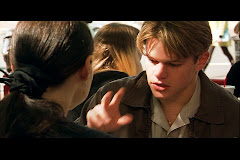
Over the next few months or so, I will post bits and pieces from my thesis as I rework sections for publication. I hope that which I have captured in this research can provide guidance or sustenance to fellow travelers who wrestle with their own angels or demons (do we ever know which it is that has grabbed us from behind?)
I think Rev. Renita Weems captured it best in the opening of her book, Listening For God: "No one is ever prepared to endure the long silence that follows intimacy. No one is prepared to face it when it comes after lovemaking. No one is prepared to face it when it comes after a season of intimacy with God. It is the hardest thing to talk about, and it is the hardest thing in the spiritual journey to prepare for. The long silence between intimacies, the interminable pause between words, the immeasurable seconds between pulses, the quiet between epiphanies, the hush after ecstasy, the listening for God – this is the spiritual journey, learning how to live in the meantime, between the last time you heard from God and the next you hear from God.
I would be honored if you'd let me know what you think.




.jpg)


